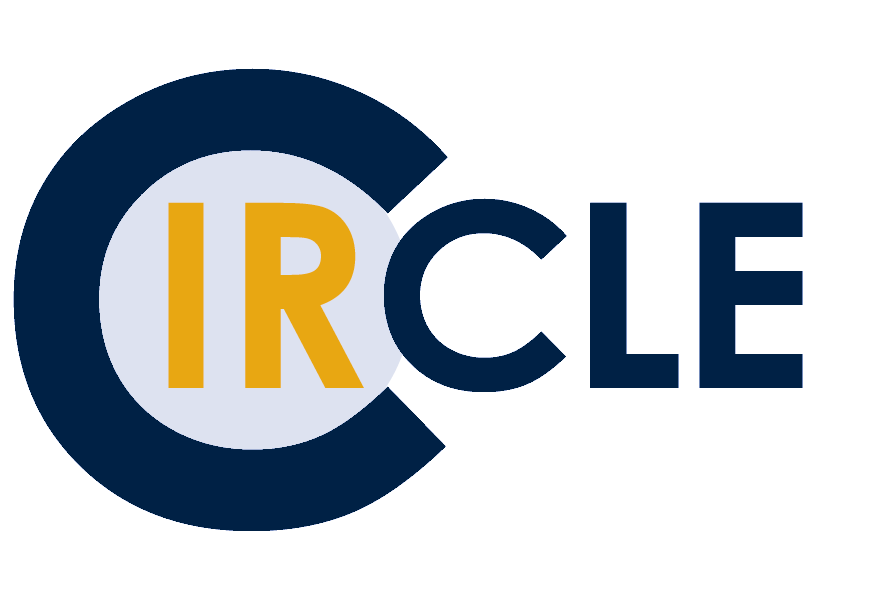
Photo courtesy: UBC Library Communications and Marketing
As my term with cIRcle comes to an end, I have been reflecting on what I’ve learned during my introduction to working in an open access institutional repository. This post is an overview of my contributions to various cIRcle projects and the skills I have developed over the past few months. Combined with my work for cIRcle, I also had the pleasure of taking the Program for Open Scholarship and Education this term through the UBC Library, which reinforced my day-to-day learning about the broader open access landscape.
Submission Support
As the Digital Repository Research Assistant, one of my main responsibilities throughout the term was to provide ongoing support to cIRcle’s mediated deposit submission workflows. This work involves depositing a range of content on behalf of authors by preparing files (e.g., adding version statements and standardizing filenames) and creating new metadata records in DSpace, cIRcle’s open source repository software. cIRcle’s Metadata Manual–which was recently updated in June–was one of the key resources that I consulted regularly to ensure all records were accurately described to support discovery and retrieval of materials within UBC’s Open Collections.
After the initial cIRcle onboarding period, I became more comfortable working with terminology and concepts that I had previously limited hands-on experience with, including Creative Commons licensing, embargo policies, deposit workflows, and identifying the differences between preprints, postprints, and published article versions. Taking part in this work was also a great opportunity to gain insight into the range of research produced by UBC faculty, staff and students across the university’s various programs and community affiliations.
Blog Posts : Non-English and Multilingual Theses and Dissertations
I also wrote and collaborated on a two-part series of instructional blog posts. The first post, co-written with Amber Saundry, focuses on answering a common question from graduate students regarding cIRcle’s support for submitting theses and dissertations containing non-English and multilingual content. This post provides an overview of how cIRcle metadata fields reflect non-English, multilingual and other non-language content, as well as cIRcle metadata’s affordances and limitations. The second post provides guidance on how to browse and find these materials by leveraging Open Collections’ search features.
Throughout my writing process, I greatly benefited from ongoing feedback and insights from the cIRcle team. Consulting cIRcle’s procedures for creating accessible screenshots and writing alternative text also helped me to enhance the instructional content of these posts.
This project was a valuable exercise in learning how to synthesize technical concepts and distil them effectively for a wider audience. Though I had already developed an interest in metadata from previous coursework, I gained an even greater appreciation of the many layered ways metadata (and importantly, a broader awareness and understanding of its existence) can preserve and help others discover a wide variety of digital content. Notably, I was pressed to think more about how standards, like Unicode, facilitate how linguistic content is represented digitally.
DSpace Communities and Collections Authorization Audit
Over the years, cIRcle workflows have shifted toward a primarily mediated deposit model. As a result, the cIRcle team recognized the need for a fulsome review of user roles assigned to cIRcle’s communities and collections (maintained within DSpace) to reflect current workflows.
This project builds off of work started by cIRcle’s prior Research Assistant in Winter 2024, who created a spreadsheet that outlined the roles, groups, and users assigned to each DSpace community and collection. Using guidelines developed by the cIRcle Office, they built a list of recommended actions to remove, add, or maintain DSpace users and groups to ensure alignment.
My contribution to this project involved implementing each of the recommended actions to reflect these updates. I gained experience navigating DSpace’s internal architecture, and developed insight into how DSpace authorization settings can be customized to support workflows for creating and managing cIRcle collections.
Content Recruitment and Outreach : UBC Librarians and Archivists
This term I worked on one of cIRcle’s content recruitment and outreach campaigns. cIRcle’s previous campaign focused on recruiting articles authored by UBC faculty supervisors of recently deposited graduate theses and dissertations. The scope of this summer’s campaign was to recruit eligible articles authored by UBC librarians, archivists and library staff. This first involved identifying UBC Library-affiliated articles that were not already openly accessible. Next, I confirmed the articles’ eligibility for deposit by referring to the associated journal’s self-archiving policies. One of the most helpful tools I used during this process was Jisc’s Open Policy Finder, a search engine designed specifically for navigating the complex and ever-changing terms set by journals and publishers. Once I determined whether an article was permitted for deposit to an institutional repository (and if there was an associated embargo period), I contacted the author to request the appropriate article version and a signed copy of the cIRcle Non-Exclusive Distribution License. If I received both components, I proceeded with the mediated deposit workflow to deposit the content to cIRcle.
Before I began the work of identifying articles and conducting author correspondence, I also contributed to developing email templates. Considering the challenges presented by the shifting open access landscape, this work further highlighted the essential role of communications in increasing authors’ awareness of the available options for making their work open and accessible to others.
Wrap up
Over the course of these various projects I developed a much stronger sense of the collective of skills and knowledge required for maintaining and developing an institutional repository, both day-to-day and long-term. I am grateful for the opportunity to develop these skills with the ongoing support and generosity of the cIRcle Office. As an aspiring lifelong advocate of open research principles, I look forward to applying what I’ve learned in future roles.
